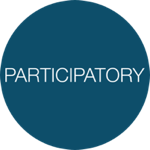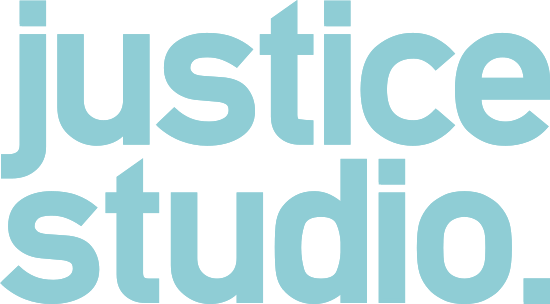We believe that the strongest evidence comes from a mixed method approach. We use a variety of qualitative, quantitative and partcipatory methods tailored to meet your needs.

Justice Studio is particularly experienced in qualitative work including structured, semi structured and unstructured interviews, focus groups, and observations. We are skilled at undertaking qualitative research with people with complex needs using sensitive interviewing techniques. Our qualitative work with children and young people often incorporates creative qualitative techniques such as art and games. We employ vigorous qualitative data analysis practices and ensure that our qualitative findings are robust, meaningful and relevant.

We see quantitative data as the bones of our research. We use surveys, demographic, attainment, or other datasets to characterise populations and outcomes. We take a critical approach, rebalancing power dynamics that have historically been reinforced with ‘value neutral’ statistics. We are highly skilled at diagnosing potential limitations and biases and use the most appropriate analytical framework to overcome these. This can include advanced approaches such as hierarchical or decomposition analyses in addition to more standard bivariate and multivariate analyses.

Participatory research has the principle of co-design at its core. It’s about creating the research scope, methods and outputs with participants, rather than us as researchers ‘doing research to’ the participants. It’s an exciting way to ensure that the research is an empowering and inspiring process rather than an extractive one. Our participatory research includes co-designing methodologies, having service users embedded in our research team, using peer-interviewing techniques, and community surveying techniques.
METHODS
We believe that the strongest evidence comes from a mixed method approach. Almost all of our research and evaluations are conducted using mixed methods, as well as incorporating participatory and participant-led elements.

Justice Studio is particularly experienced in qualitative work including structured, semi structured and unstructured interviews, focus groups, and observations. We are skilled at undertaking qualitative research with people with complex needs using sensitive interviewing techniques. Our qualitative work with children and young people often incorporates creative qualitative techniques such as art and games. We employ vigorous qualitative data analysis practices and ensure that our qualitative findings are robust, meaningful and relevant.

We see quantitative data as the bones of our research. We use surveys, demographic, attainment, or other datasets to characterise populations and outcomes. We take a critical approach, rebalancing power dynamics that have historically been reinforced with ‘value neutral’ statistics. We are highly skilled at diagnosing potential limitations and biases and use the most appropriate analytical framework to overcome these. This can include advanced approaches such as hierarchical or decomposition analyses in addition to more standard bivariate and multivariate analyses.

Participatory research has the principle of co-design at its core. It’s about creating the research scope, methods and outputs with participants, rather than us as researchers ‘doing research to’ the participants. It’s an exciting way to ensure that the research is an empowering and inspiring process rather than an extractive one. Our participatory research includes co-designing methodologies, having service users embedded in our research team, using peer-interviewing techniques, and community surveying techniques.
